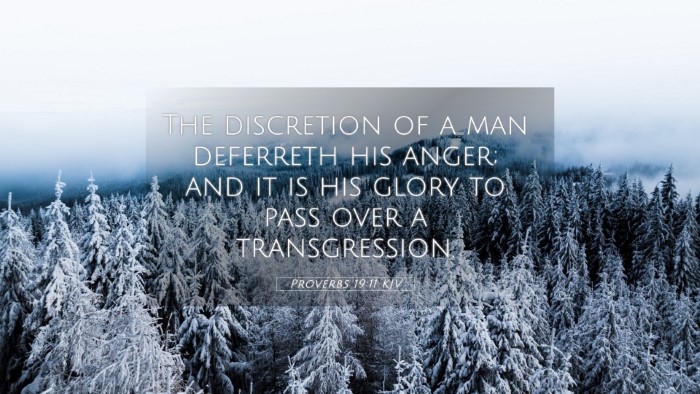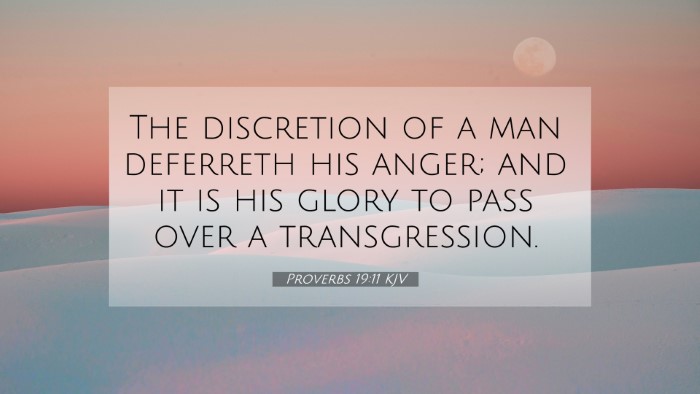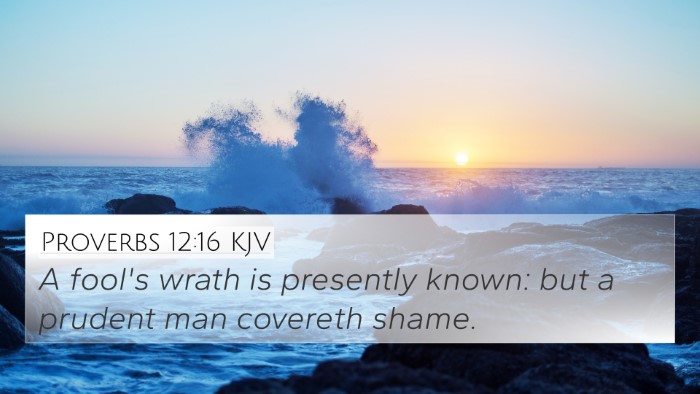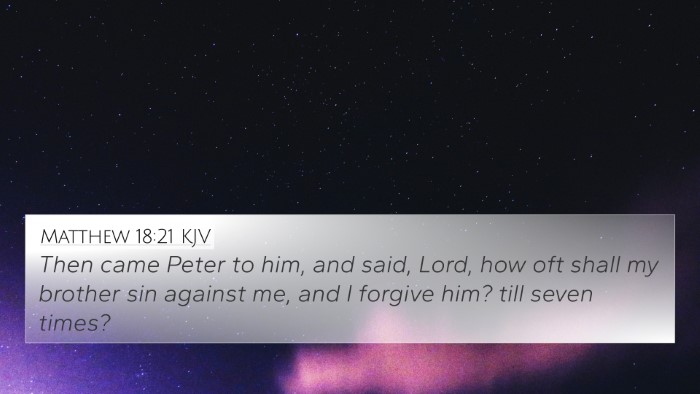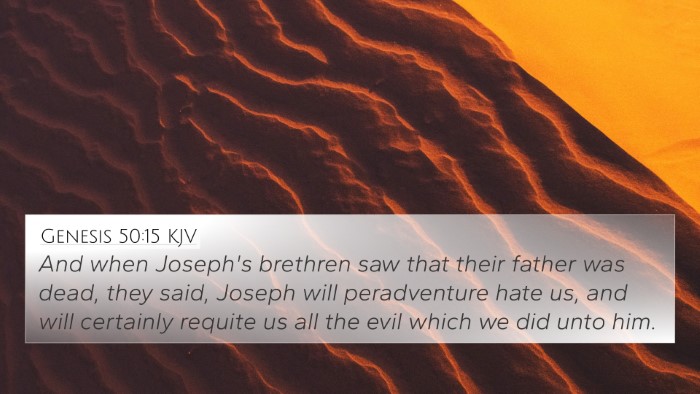Understanding Proverbs 19:11
Proverbs 19:11: "The discretion of a man deferreth his anger; and it is his glory to pass over a transgression."
Meaning and Interpretation
This verse speaks to the value of self-control and the virtue of patience in dealing with the wrongdoings of others. The wisdom literature found in Proverbs emphasizes the importance of temperance and the thoughtful consideration of one's actions in response to provocation.
- Discretion and Anger: The "discretion" of a man refers to his ability to think critically and exercise wisdom. In this context, it highlights the ability to refrain from immediate anger, suggesting that a calm response is wise.
- Deferring Anger: Deferring anger implies that one does not rush to react to provocations. Instead, an individual with discretion will control their emotions and choose to respond thoughtfully, which reflects maturity.
- Glory in Forgiveness: The latter part of the verse suggests that it is honorable to forgive transgressions. Recognizing that peace and harmony are more valuable than being right can be a significant indicator of wisdom.
- Self-Control: Practicing self-control not only benefits personal relationships but also contributes to inner peace. The individual exercising discretion is seen as wise, while quick to anger is typically perceived as foolish.
Biblical Connections
Proverbs 19:11 connects thematically with several other scriptures that emphasize mercy, patience, and the importance of controlling one’s temper. These connections encourage deeper reflection and a holistic view of biblical wisdom.
- James 1:19-20: "Wherefore, my beloved brethren, let every man be swift to hear, slow to speak, slow to wrath: For the wrath of man worketh not the righteousness of God."
- Proverbs 15:1: "A soft answer turneth away wrath: but grievous words stir up anger."
- Ephesians 4:26-27: "Be ye angry, and sin not: let not the sun go down upon your wrath: Neither give place to the devil."
- Colossians 3:13: "Forbearing one another, and forgiving one another, if any man have a quarrel against any: even as Christ forgave you, so also do ye."
- Proverbs 29:11: "A fool uttereth all his mind: but a wise man keepeth it in till afterwards."
- 1 Peter 3:9: "Not rendering evil for evil, or railing for railing: but contrariwise blessing; knowing that ye are thereunto called, that ye should inherit a blessing."
- Matthew 6:14-15: "For if ye forgive men their trespasses, your heavenly Father will also forgive you: But if ye forgive not men their trespasses, neither will your Father forgive your trespasses."
Thematic Bible Verse Connections
The themes explored in Proverbs 19:11 resonate throughout scripture, encouraging believers to engage in practices that lead to reconciliation and peace rather than conflict.
- Forgiveness: Experiencing and extending forgiveness is central to Christian teaching, underscoring the need to control anger and promote understanding.
- Patience: The Bible frequently highlights patience as a virtue that leads to wisdom and understanding, emphasizing emotional regulation.
- Self-Control: The virtue of self-control is a recurring theme, particularly in the context of anger management and interpersonal relationships.
Conclusion
In conclusion, Proverbs 19:11 delivers profound wisdom concerning the value of discretion, the management of anger, and the glory found in forgiveness. By cross-referencing this verse with others, such as James 1:19-20 and Ephesians 4:26-27, believers can gain a comprehensive understanding of how to navigate conflicts and maintain peaceful relations, highlighting that patience and forgiveness are essential aspects of spiritual maturity.
Tools for Further Study
To dive deeper into these connections, consider utilizing the following resources:
- Bible concordance
- Bible cross-reference guide
- Crossover Bible study methods
- Comprehensive Bible cross-reference materials

